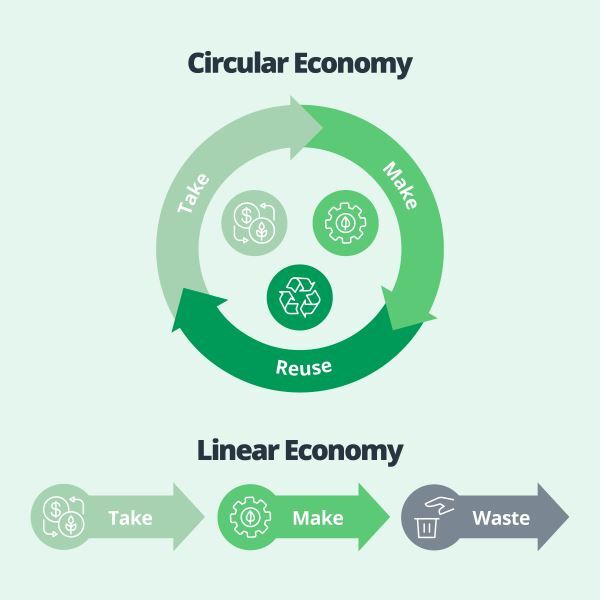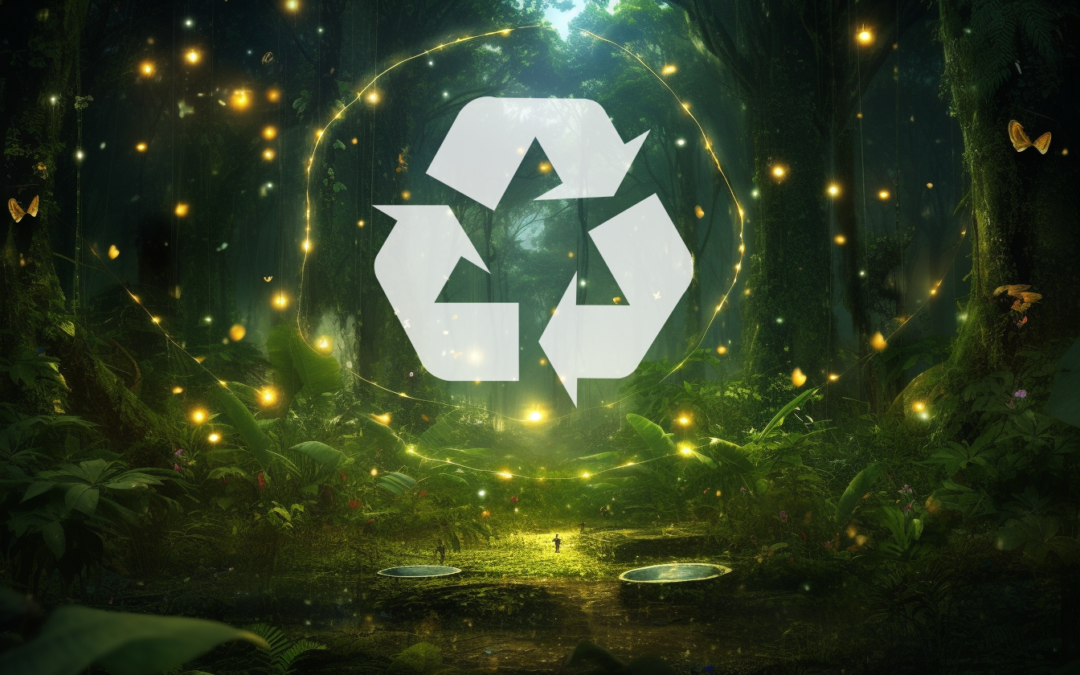A circular economy is an approach to producing, consuming, and disposing of goods. It challenges the traditional linear “take-make-waste” model. Instead, it promotes a system where resources are circulated for as long as possible.
In a circular economy, products are designed to be durable, repairable, and reusable. Instead of ending up in landfills, they are given new life through recycling, refurbishing, or upcycling. This shift towards a closed-loop system minimizes waste, reduces environmental impact, and fosters economic growth.

The circular economy maximizes resource efficiency by prioritizing reduction, reuse, and recycling. As a result, it minimizes the extraction of new raw materials. In addition, it encourages innovative business models such as product-as-a-service and sharing platforms, which enable access to goods without the need for ownership.
Not only does the circular economy contribute to a greener planet, but it also brings economic benefits. It drives job creation, stimulates innovation, and enhances resource security. By embracing this regenerative approach, businesses and communities can thrive while safeguarding the environment for future generations.
In our journey towards a sustainable future, Firefly Shire is proud to embrace the principles of the circular economy. We believe that by rethinking our practices and actively participating in a regenerative system, we can make a meaningful impact on the environment and contribute to a more resilient world.
Ways that the Firefly Shire plans to incorporate a circular economy approach:
Sustainable Infrastructure:
We are prioritizing sustainable infrastructure design and construction. We aim to minimize resource consumption and maximize efficiency. By integrating recycled and repurposed materials into our projects, we reduce waste and embrace resource stewardship.
Local Sourcing and Regenerative Permaculture:
We actively support local communities by sourcing materials and services from nearby suppliers. By doing so, we reduce transportation emissions and foster local economic development. Our commitment to regenerative permaculture practices will extend to our organic gardens and sustainable food production. By growing our produce and utilizing composting techniques, we will close the nutrient loop and minimize food waste.
Recycling and Waste Management:
Firefly Shire will implement a recycling and waste management system and encourage visitors to recycle, compost organic waste, and minimize single-use items. By prioritizing waste reduction, recycling, and upcycling, we contribute to a circular economy by keeping valuable resources in circulation and reducing the strain on landfill capacity.
Collaborative Networks and Sharing Economy:
We aim to engage in collaborative networks and the sharing economy. Through partnerships with local organizations and businesses, we can promote resource-sharing initiatives such as community internet, tool libraries, community gardens, and skill-sharing. By fostering a sense of community and cooperation, we can contribute to a more resilient and resource-efficient society.
At the Firefly Shire, we are dedicated to sustainable living and the principles of the circular economy. By integrating sustainable infrastructure, practicing regenerative permaculture, prioritizing recycling and waste management, and participating in collaborative networks, we can actively contribute to a regenerative future.
Let’s rethink our consumption patterns, support sustainable businesses, and champion that waste is not the end but the beginning of a new opportunity. Together, we can create a world where resources are valued, waste is minimized, and sustainability becomes the foundation of our future.
